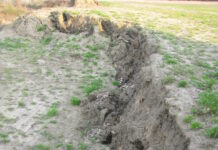Photo credit: DiasporaEngager (www.DiasporaEngager.com).
Recent weeks have seen a surge in anti-Israel protests at universities across the US. As university leaders, you are undoubtedly facing intense pressure from various perspectives. Here are five keys issues and questions you have probably asked yourselves — but you likely got the answers wrong:
1. Isn’t it paramount that we support free speech and allow students to protest?
Free speech is fundamental in American society, allowing diverse opinions to be heard — even controversial ones. However, speech that threatens specific individuals or groups does not qualify as protected speech. At some campuses, rhetoric has escalated to dangerous levels, with calls for violence against Israeli cities and Jewish students. Such expressions exceed the bounds of free speech.
Jewish students have been targeted, physically intimidated, and even violently attacked. All of this puts much of the anti-Israel protests beyond the protection of free speech.
While protecting free speech is part of the equation, creating an environment that condemns and protects against racism and discrimination is also crucial. Imagine if the KKK wanted to protest in the middle of Columbia University chanting that “blacks are not welcome here” or if anti-gay groups were calling for homosexuals to be targeted and harassed. Would any university leader stand for this? Would anyone want to attend a university that allows this?
2. Aren’t these protests against Israel, not Jews? We should not equate the two.
The stated reason for the protests is to condemn Israel’s war against Hamas in Gaza. However, much of the rhetoric has devolved into antisemitism against Jewish students. Since the war began, 73% of Jewish college students reported experiencing antisemitic incidents, from vandalism to threats of violence. Additionally, 44% of non-Jewish students also stated that they witnessed antisemitism on campus. These are astonishing numbers.
The core of the connection between anti-Israel hate and antisemitism is the centrality that Israel plays in Jewish identity. One cannot separate Israel from Judaism. The Land of Israel is central to Judaism’s history, sacred texts, prayers, and religious observance. Israel cannot be separated from Judaism — it is integral to it. Thus, for so many Jews, an attack on Israel is an attack against the Jewish People. And many Jews have been attacked simply for being Jewish; the numbers and stories are undeniable
3. Since there are Jewish students also protesting, this can’t be antisemitism, right?
Jewish participation in protests does not negate antisemitism. Although some Jewish students participate in these protests, they represent a minority within the broader American Jewish community. Recent studies, including one by Pew, indicate that a significant majority of American Jews validate Israel’s reasons for engaging Hamas (89%), though opinions on the conduct of operations vary. The diversity among protesters, including Jews, doesn’t nullify the antisemitic elements present, particularly when Jewish organizations like Jewish Voices for Peace, which has been critiqued for antisemitic rhetoric, are involved.
4. How do I know when a protest against Israel’s actions becomes antisemitism?
Soviet dissident and human rights advocate Natan Sharansky has defined when criticism of Israel crosses the line to antisemitism. He calls it the “3 D’s”: delegitimization, demonization, and double standards.
Delegitimization: Questioning Israel’s very existence or advocating to ban “Zionists” from campus is delegitimizing and antisemitic.
Demonization: Israel is fighting against an enemy who openly calls for its destruction, attacks civilians, and then hides amongst Palestinian civilians. Accusing Israel of indiscriminately killing innocent people, committing genocide, or other war crimes when it is not factual is demonizing and antisemitic.
Double Standards: Criticizing Israel for actions that other nations are not criticized for is a double standard and antisemitic. Israel is often criticized for actions that other nations are not. While all loss of innocent life is tragic, one has to wonder why there are protests against Israel across all of these campuses when nothing was done for so many other horrible situations. There were no protests when Syria was using chemical weapons against its own people. There were no protests when Nigerian Christians were slaughtered by Islamists. There were no protests standing up for the brave Muslim women marching in the streets against the Iranian regime. There were no protests to stand up for the Kurds or the Yazidi women and children who were used as sex slaves by ISIS. Why not?
5. What do these protestors want and how can we end this?
Hearing from the protestors themselves, it seems like they have many conflicting agendas, including calls for a ceasefire, cessation of US support for Israel, or even the destruction of Israel. Some also express animosity towards Western values and are also expressing hatred toward America and Western culture, while some have no idea why they are protesting in the first place. This may explain the support they are receiving from Hamas and Iran, as the protesters are aligning with groups hostile to liberal democracies. Universities must formulate responses that reject hate and promote a safe academic environment without compromising free speech.
So how do we end this? Certainly not by giving in to haters and those intimidating, harassing, and threatening others. All university leaders must stand strong against this hatred and make it loud and clear that these hate tactics will not succeed
Elliot Mathias is Aish’s Chief Operating Officer for Global Activities, as well as Executive Director of Aish New York. Elliot is also the founder of Hasbara Fellowships, a program he created while studying at Aish in Jerusalem, Hasbara Fellowships grew under his leadership to become one of the premier campus Israel advocacy organizations in North America, training and supporting thousands of students to stand up for Israel.
Source of original article: Elliot Mathias / Opinion – Algemeiner.com (www.algemeiner.com).
The content of this article does not necessarily reflect the views or opinion of Global Diaspora News (www.GlobalDiasporaNews.com).
To submit your press release: (https://www.GlobalDiasporaNews.com/pr).
To advertise on Global Diaspora News: (www.GlobalDiasporaNews.com/ads).
Sign up to Global Diaspora News newsletter (https://www.GlobalDiasporaNews.com/newsletter/) to start receiving updates and opportunities directly in your email inbox for free.

































